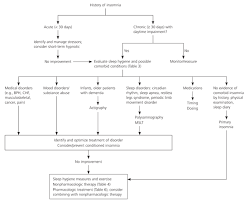PMS Insomnia: Understanding and Managing Sleep Disturbances During Your Menstrual Cycle
Many women experience sleep disturbances during the premenstrual syndrome (PMS) phase of their menstrual cycle. PMS can bring about a range of physical and emotional symptoms, with insomnia being a common issue that affects both the quality and quantity of sleep.
Causes of PMS Insomnia:
There are several factors that can contribute to insomnia during PMS:
- Hormonal Changes: Fluctuations in estrogen and progesterone levels can disrupt the body’s internal clock, making it difficult to fall asleep or stay asleep.
- Physical Discomfort: Symptoms such as bloating, cramps, and breast tenderness can make it uncomfortable to find a restful sleeping position.
- Emotional Stress: Mood swings, anxiety, and irritability commonly experienced during PMS can also impact sleep quality.
Managing PMS Insomnia:
Fortunately, there are strategies that can help manage insomnia during the PMS phase:
- Maintain a Consistent Sleep Schedule: Going to bed and waking up at the same time every day helps regulate your body’s internal clock.
- Create a Relaxing Bedtime Routine: Engage in calming activities before bed, such as reading, taking a warm bath, or practicing relaxation techniques like deep breathing or meditation.
- Avoid Stimulants: Limit caffeine intake in the afternoon and evening, as well as avoiding electronic devices close to bedtime.
- Manage Stress: Practice stress-reducing activities such as yoga, mindfulness, or talking to a therapist to help alleviate emotional tension that may be impacting your sleep.
- Establish a consistent sleep schedule to regulate your body’s internal clock.
- Limit caffeine and alcohol intake, especially in the afternoon and evening.
- Engage in relaxation techniques before bedtime, such as deep breathing or meditation.
- Create a comfortable sleep environment that is cool, dark, and quiet.
- Consider talking to a healthcare provider about potential treatment options for PMS-related insomnia.
If you continue to experience severe insomnia or if your sleep disturbances significantly impact your daily life during PMS, consider consulting with a healthcare provider. They may recommend further evaluation or treatment options to help improve your sleep quality and overall well-being.
5 Effective Tips to Combat PMS-Related Insomnia
Establish a consistent sleep schedule to regulate your body’s internal clock.
Establishing a consistent sleep schedule is a valuable tip for managing PMS insomnia. By going to bed and waking up at the same time each day, you can help regulate your body’s internal clock, also known as your circadian rhythm. This consistency can signal to your body when it’s time to rest and when it’s time to wake up, promoting better sleep quality and overall well-being. Creating a routine around your sleep schedule can support your body in adjusting to hormonal fluctuations during the PMS phase, potentially reducing the impact of insomnia on your menstrual cycle.
Limit caffeine and alcohol intake, especially in the afternoon and evening.
Limiting caffeine and alcohol intake, especially in the afternoon and evening, can significantly help in managing PMS-related insomnia. Caffeine is a stimulant that can interfere with your ability to fall asleep and stay asleep, while alcohol, despite its initial sedative effects, disrupts the sleep cycle and can lead to fragmented and less restorative sleep. By reducing consumption of these substances later in the day, you can support your body’s natural sleep-wake cycle and promote better sleep quality during the PMS phase of your menstrual cycle.
Engage in relaxation techniques before bedtime, such as deep breathing or meditation.
Engaging in relaxation techniques before bedtime, such as deep breathing or meditation, can be a highly effective way to alleviate PMS-related insomnia. These practices help calm the mind and body, reducing stress and anxiety that may be contributing to sleep disturbances. Deep breathing techniques promote relaxation by slowing down the heart rate and activating the body’s natural relaxation response. Similarly, meditation encourages mindfulness and focus, allowing you to let go of racing thoughts and worries that can keep you awake at night. By incorporating these calming activities into your bedtime routine, you can create a peaceful environment conducive to better sleep during the challenging PMS phase.
Create a comfortable sleep environment that is cool, dark, and quiet.
To help manage insomnia during PMS, it is beneficial to create a comfortable sleep environment that is cool, dark, and quiet. A cool room temperature can promote better sleep by helping your body reach an optimal state for rest. Keeping the room dark signals to your body that it’s time to sleep, while minimizing noise disturbances can prevent interruptions in your restorative rest. By setting up a soothing and conducive sleep environment, you can enhance your chances of getting a good night’s sleep during the challenging PMS phase.
Consider talking to a healthcare provider about potential treatment options for PMS-related insomnia.
Consider discussing potential treatment options for PMS-related insomnia with a healthcare provider. Seeking professional guidance can help you explore effective strategies to manage sleep disturbances during the premenstrual syndrome phase. Healthcare providers may offer personalized recommendations, such as lifestyle adjustments, relaxation techniques, or medication options, to address your specific needs and improve your quality of sleep. Prioritizing your well-being by seeking medical advice can lead to better sleep patterns and overall health during challenging times of hormonal fluctuations.



